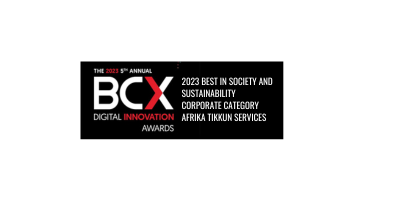The four-day work week could offer a unique solution to unemployment while taking the pressure off South Africa’s stressed-out workers, according to Afrika Tikkun Services (ATS): a youth advisory, training, recruitment, and placement organisation. This follows the announcement of a ground-breaking project set to be piloted in South Africa (SA), which will see employers trial the concept with employees locally. A non-profit company, 4 Day Work Week SA, has reportedly announced recruiting employers to participate in a pilot project for 2023.
The initiative will see employees at participating companies working for 80% of their regular working hours for 100% of the pay and is part of a global initiative that began earlier this year, with participating organisations already reporting positive results.
How the four-day work week could help curb unemployment
Afrika Tikkun Services (ATS) welcomes this bold move and while it is not a blanket solution for all work environments, it believes that certain working environments will benefit from this approach and that this model could help curb SA’s soaring unemployment levels.
ATS encourages investigating a model where the extra day is used to create work for unemployed youth. “In light of SA’s high youth unemployment, employees may be accommodating of a trade-off where the extra day enables someone else to put food on the table for themselves and their family via an employment intervention,” says ATS CEO Onyi Nwaneri.
Over half of the country’s youth is without work, despite having a tertiary qualification. According to Statistics South Africa (Stats SA), the graduate unemployment rate was 40.3% for those aged 15–24 years and 15.5% for those aged 25–34 years. Among the millions of unemployed, qualified young people are those who may benefit from opportunities created on the open weekday.
A win-win for employers and employees?
The hypothesis of the four-day work week concept is that employees should be able to produce 100% of the work expected of them and be far happier and more productive if they are only required to work four days a week, instead of five days.
ATS believes it is key to determine what works for your company and what will enable the company as a collective to achieve set goals and objectives. An output and outcome-based culture not only drives productivity but also innovation.
Data from Stats SA over the last few quarters highlights South Africa’s productivity problem, with SA Labour Productivity dropping by 3.80 % year-on-year in June 2022, compared with a growth rate of 3.27 % in the previous quarter. Industries are not operating at their optimum and are in desperate need of innovative ways to encourage a productive workforce. Working employees to the point of exhaustion is harmful to their mental health, productivity and creativity. A balance where a level of accountability is imposed to incentivise productivity and output/outcome-based delivery is required.
‘Young professionals and workers, in general, are facing multiple pressures that affect productivity. The high cost of living, daily commutes, and family responsibilities leave workers in a constant state of exhaustion, meaning a lot of them are not working at 100% capacity,” says Nwaneri.
Allowing workers an extra day to gather themselves, rest and catch up on other aspects of their lives has already been proven to create better happier workers in other countries. Over the past three-and-a-half months in the UK, 88 percent of the 3000 participants in the UK say they have managed to keep the same productivity level as the longer work week, according to Singularity Hub.


